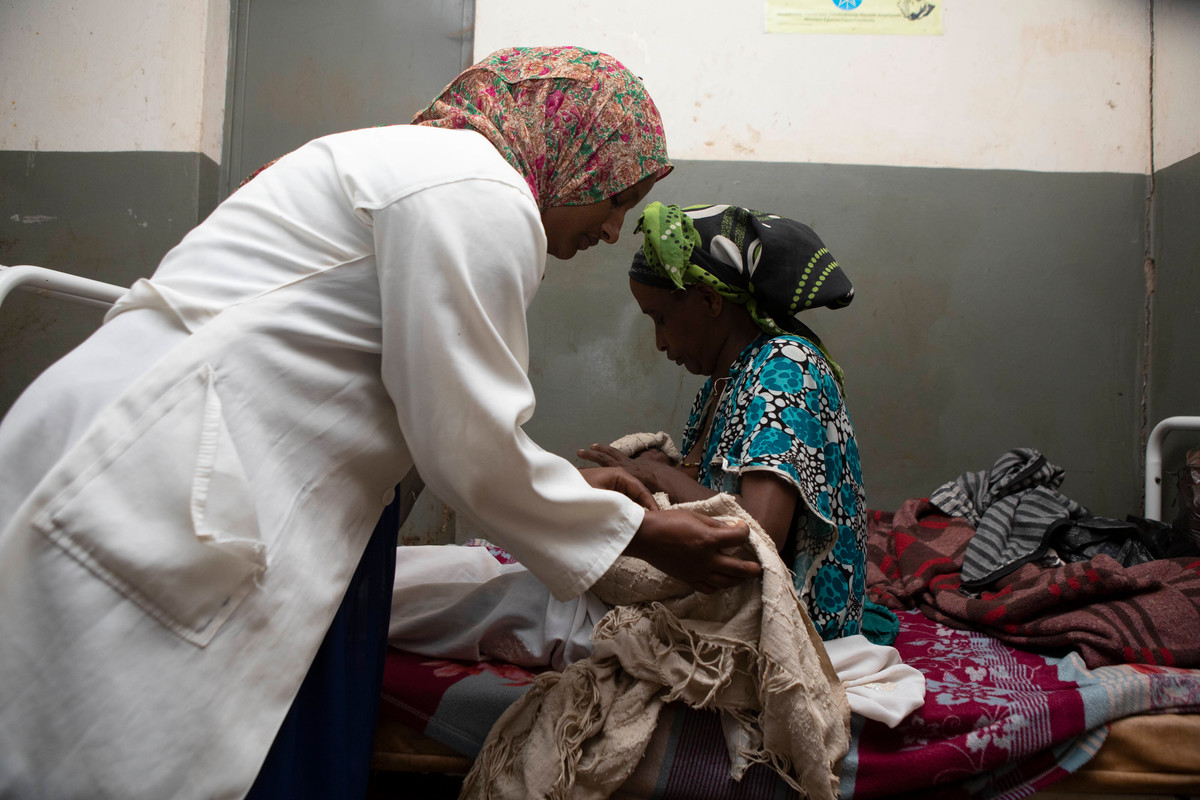In a room that is bare but for a few beds, Kuzema Abba Naga is resting after giving birth hours before to her tenth child, and now she thinks, her last.
Before coming from her village to this remote and rural government health center in the Kebele district to give birth, Naga never knew it was possible to choose when or whether to have a baby.
“I am 38 years old and I had my first baby at age 15,” she said. “This is my first baby for eight years.”
Naga named the baby Nejat, which translates to ‘liberation’, after giving birth and discovering the contraception options available to her, she decides to have an IUD fitted immediately.
Lack of access to contraception in rural areas
This is the first time midwife Rewda Kedir has fitted a woman who has just had a baby with an IUD, though it is not uncommon to meet women coming from rural areas who have never heard about family planning. When they do, many are interested in it, even if they have to fight their husbands to use it or they are forced to hide it from them.
“They want contraceptives to space out their children,” said Kedir.
“Sometimes their husbands don’t like them coming in to get family planning, so we have to lock their appointment cards away. Their husbands want more children and some think that women who do not keep having their children will go with other men,” she said.

Kedir says that most women prefer using the contraceptive implants because they feel few side effects, are long-lasting, easy and painless to have fitted and to conceal.
“Here, people believe that more kids means more wealth, and religion restricts family planning services,” she said.
“Only 28 percent of women aged 15 to 49 use modern contraceptives,” says Dessalegn Workineh, who manages the Family Guidance Association of Ethiopia’s south west area office in Jimma.
Expanding contraceptive access in Ethiopia
With support from the Family Planning Association of Ethiopia (FGAE), who work with the Ethiopian government, clinics in remote rural areas like this one can now provide a full range of sexual and reproductive health (SRH) services for free.
Having all the products and services available and under one roof makes it easier to reach people who might really benefit from help with family planning.
In Oromia, 43 percent of women give birth at a health facility. Kedir finds a lot of women coming in for maternal and post-natal health services who she speaks to about family planning, end up staying or returning to get family planning services.
“Before, it was very difficult to persuade people to use family planning and we had to have a lot of conversations. Now, they come 45 days after delivery to speak to us about this when they get their babies immunised,” she said.
Staff at the clinic also provide family counselling to try and encourage men that contraception is a good idea for the whole family.
“We tell them that continuously giving birth can affect the mother’s health and might lead to maternal death, damage the uterus and lead to long-term complications,” said Kedir.
A number of staff at the clinic have been trained on family planning and can answer queries and deliver services, “So when I’m not here, people can help.”
“The implant procedures are better because there are newer products,” said Kedir, who sits next to a handmade poster with the options for contraception glued on that still has the older, match-sized implants and the new, thinner implants.
Providing comprehensive abortion care
The clinic also provides comprehensive abortion care and for the past six years, medical abortions. This involves taking a pill rather than having vacuum aspiration or surgery, and is helping to stop women turning to unsafe abortion methods.
“Before, there was no safe abortion. People would go to traditional healers and then come here with complications like sepsis, bleeding, anaemia and toxic shock,” said Kedir.
“The good thing is that the women that have [safe] abortions get proper care and the counselling and education has improved,” said Kedir.
In Ethiopia, these services are vital “to save mothers from dying due to cases of unsafe abortion,” says Workineh.
“Working on comprehensive abortion care reduces complications and therefore maternal mortality,” he added.
Kedir says women still have to fight their husbands to get access to family planning and cases can end up in court or divorce. But the cases of complications resulting from unsafe abortion have plummeted.
“We used to see about 40 a year. Now it’s one or two,” she said.